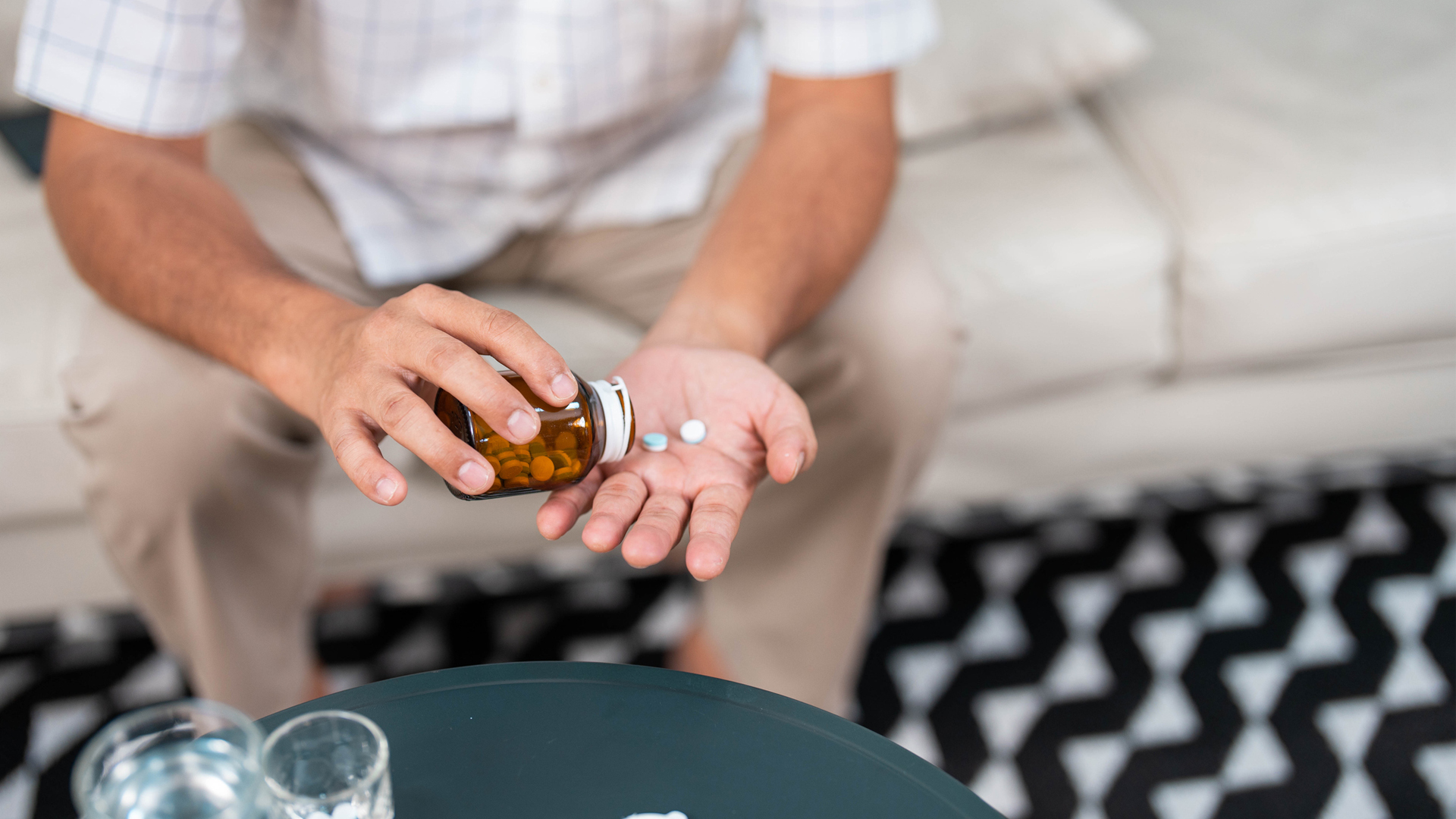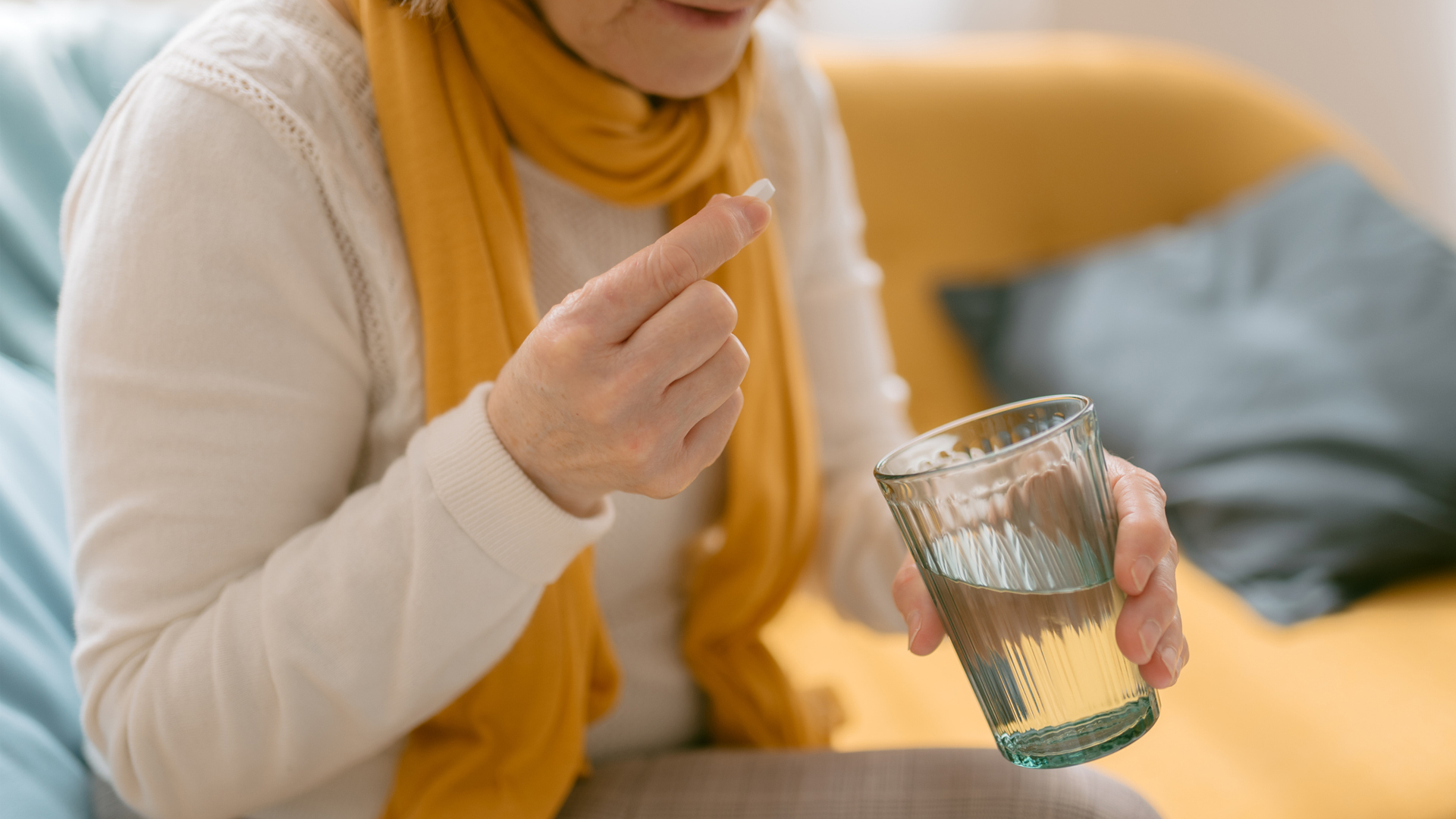Which vitamins are good for sore joints?
Inflammation and joint pain can take a big toll — so which vitamins are good for sore joints?


Wondering which vitamins are good for sore joints? Well, if you’re suffering from stiff or aching joints, you’re not alone. Almost one in four adults in the United States is affected by conditions like arthritis and gout, making it difficult to complete daily tasks or do the things you love.
Women going through menopause may also find themselves struggling with joint pain, because estrogen, the hormone that protects bones and helps to keep joint inflammation low, begins to decline. This can cause the joints to swell and become painful.
Joint pain can often be worse in the morning and eases up with the day’s activities. That being said, you may be wondering whether there is anything you can do to ease the discomfort. Diet can often be a good place to start, as can the best supplements for joints. But can specific vitamins actually help with joint pain? And how can you ensure you’re getting enough of the right ones? Read on to find out.
Which nutrients are good for sore joints?
First things first, no single vitamin or mineral can ‘cure’ or treat joint pain. Nutrients don’t just work on their own either — you need an array of different ones in order for your body to function properly. However, there are some particular ones that research has found may help to reduce pain associated with the joints, as well as arthritic conditions.

Turmeric
Turmeric is a popular spice, noted for its anti-inflammatory benefits. This is because it contains a naturally occurring substance called curcumin. One study published in Trials found that curcumin may help to ease osteoarthritis pain. For one month, participants were given the NSAID diclofenac (50 mg, twice daily) or curcumin (500 mg, three times daily). They found that both treatments relieved arthritis symptoms and helped to a similar degree, with 94% of those taking curcumin and 97% of those taking diclofenac reporting at least 50% improvement. People also reported fewer side effects with curcumin, with none of the participants taking curcumin needing treatment for stomach trouble, compared with 28% of those taking diclofenac.
Why not try incorporating turmeric into warming curries or soups? Alternatively, you can make an evening drink by mixing it with your favorite milk and other spices.
Omega-3
Omega-3 is essential because your body cannot produce it from scratch and you can only get it through outside sources such as diet and supplements. Omega-3 fatty acids can have anti-inflammatory benefits which makes them particularly good for joint pain.
Start your week with achievable workout ideas, health tips and wellbeing advice in your inbox.
One 2016 study found that participants with rheumatoid arthritis who were given omega-3 supplements for 12 weeks experienced significant improvements in their condition. Omega-3 may also help to strengthen the bone itself. A study published in Aging found that EPA - one of the most common forms of omega-3 - works with vitamin D to increase calcium absorption and bone density, protecting against osteoporosis.
The best dietary sources of omega-3 are oily fish such as salmon, mackerel, anchovies, sardines, and herring (think ‘SMASH’). Vegan and vegetarian sources include flax seeds, chia seeds, and green leafy vegetables such as Brussel sprouts, kale, or spinach.
Vitamin D
Vitamin D contributes to the maintenance of normal bones and muscle function. When it comes to joint pain, one study in the Annals of the Rheumatic Diseases found that adults older than 50 with vitamin D deficiency are more likely to develop pain in their hip and knee joints. When the deficiency wasn’t treated, the pain got worse.
The best source of vitamin D is sunlight. But in some parts of the world where sunlight is limited, it can be harder to meet our requirements. This is why it’s also important to eat lots of vitamin D-rich foods, including oily fish, dairy, fortified mushrooms, and some fortified breakfast cereals. You can also take a look at our round-up of the best vitamin D supplements.
Glucosamine and chondroitin
Glucosamine is a natural chemical compound in your body that helps to maintain your cartilage, tendons, and ligaments. As you get older, your levels of this compound start to reduce. Unfortunately, you can’t get glucosamine from food, which is why some people take it in the form of a supplement.
But does taking glucosamine for joints work? Studies are mixed. One study published in Annals of the Rheumatic Diseases found that glucosamine plus chondroitin (another natural substance that helps cartilage to retain water) showed comparable efficiency to the NSAID celecoxib in patients with osteoarthritis. Yet another study in the BMJ found that neither glucosamine, chondroitin, nor the two in combination relieved joint pain compared with a placebo.

Should you take supplements to help with sore joints?
If you eat a healthy and balanced diet, you should be able to get all of the vitamins and minerals you need for your body to function properly. However, this isn’t always possible, because factors such as age can affect our ability to absorb all of the nutrients from our food. This can sometimes result in nutrient deficiencies, which may make the pain worse. Therefore, a supplement containing nutrients to support healthy joints may be worthwhile.
Looking for other ways to protect your body? Take a look at our round-up of foods for joint pain. Alternatively, try out yoga for mobility.

Alice Ball is the Health Editor for Future Plc. With more than five years of experience working in health journalism, she's covered everything from why we should 'kill' the calorie, to destigmatizing the menopause. Alice also specializes in nutrition and supplements. She's a self-confessed running fanatic, currently in training for her fifth marathon. She enjoys documenting her progress on her Instagram account, @aligoesrunning. Alice works across a number of Future's sites, including LiveScience and Fit&Well.